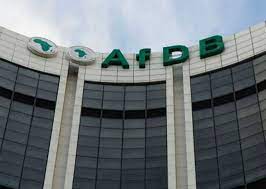Nigeria’s Path to a Trillion-Dollar Economy: Unleashing Untapped Potential
Nigeria, a nation endowed with abundant financial, human, and natural resources, possesses the inherent capacity to achieve sustained economic growth and ascend to the ranks of trillion-dollar economies. However, realizing this potential hinges on effectively harnessing these resources through enhanced governance, strategic investment, and meticulous planning. This is the central message of the African Development Bank’s 2025 Nigeria Country Focus Report, “Making Nigeria’s Capital Work Better for Its Development.” The report serves as a comprehensive roadmap, outlining bold policy recommendations aimed at bridging Nigeria’s substantial $31.5 billion annual financing gap and propelling its economic transformation forward. It emphasizes the critical need for Nigeria’s capital – its financial resources, its people, and its natural wealth – to be utilized more efficiently and strategically for national development.
Human Capital Development: A Critical Imperative
A crucial area requiring immediate attention is Nigeria’s human capital development. The report paints a concerning picture, revealing that Nigeria scores a mere 36% on the Human Capital Index, significantly trailing behind the Sub-Saharan average. This stark reality underscores the detrimental impact of chronic underinvestment in health and education, which severely hampers productivity growth. The current public spending allocations of 7.9% for education and 5.3% for health are deemed woefully inadequate for a nation characterized by a young and rapidly expanding population. Boosting investment in these critical sectors is paramount to unlocking Nigeria’s human capital potential and driving long-term economic prosperity.
Fiscal Reforms and Revenue Mobilization: Strengthening Public Finances
Another major impediment to Nigeria’s development financing is its low tax-to-GDP ratio, which stands at a meager 13%, one of the lowest in West Africa. Despite recent reform efforts, revenue mobilization remains constrained by a large informal sector, weak tax compliance, and persistent institutional inefficiencies. The report strongly advocates for expanding the tax base, enhancing compliance mechanisms, and plugging fiscal leakages to bolster public investment in crucial sectors such as health, education, and infrastructure. These reforms are essential for generating the necessary financial resources to support sustainable development initiatives.
Institutional Reforms and Governance: Building Trust and Attracting Investment
The report highlights the detrimental impact of overlapping regulatory mandates and weak institutional frameworks on Nigeria’s development financing capacity. Fragmented oversight and governance gaps have eroded public trust and discouraged much-needed investment. Institutional reforms aimed at strengthening governance, promoting transparency, and upholding the rule of law are deemed non-negotiable prerequisites for unlocking sustainable financing and fostering a conducive investment climate. These reforms will instill confidence in both domestic and foreign investors, paving the way for increased capital inflows and accelerated economic growth.
Navigating Economic Headwinds and Embracing Sustainable Growth
Despite undertaking bold reforms such as fuel subsidy removal, exchange rate unification, and tax policy adjustments, Nigeria’s economic growth remains under pressure. The report projects a slowdown in real GDP growth to 3.2% in 2025 and 3.1% in 2026, down from 3.4% in 2024, attributed to both global and domestic headwinds. However, even amidst these challenges, the report emphasizes that Nigeria stands at a critical juncture. By implementing the right policies and ensuring strong implementation, Nigeria can not only close its financing gap but also build a more resilient, inclusive, and sustainable economy. This requires a steadfast commitment to sound economic management, prudent fiscal policies, and structural reforms that address underlying bottlenecks to growth.
Leveraging Natural Capital and Exploring Innovative Financing
Furthermore, the report underscores the importance of addressing Nigeria’s declining natural capital, which currently constitutes 37.1% of its total capital wealth. This decline is primarily attributed to inadequate policies and weak environmental management. Since 1999, per capita natural capital has decreased by 2.1% annually, highlighting the urgent need for sustainable resource management practices. The report urges investments in green finance, sustainable agriculture, and the emerging carbon market, which has the potential to generate up to $2 billion in revenue. To achieve its Sustainable Development Goals, Nigeria must also explore alternative financing tools beyond traditional aid and loans. Blended finance, diaspora bonds, and fintech solutions offer promising avenues for bridging the financing gap and mobilizing resources for development initiatives. Additionally, Naira-denominated infrastructure guarantees can play a crucial role in attracting institutional investors and channeling capital towards critical infrastructure projects. By embracing these innovative financing mechanisms, Nigeria can unlock new sources of funding and accelerate its progress towards sustainable development.


